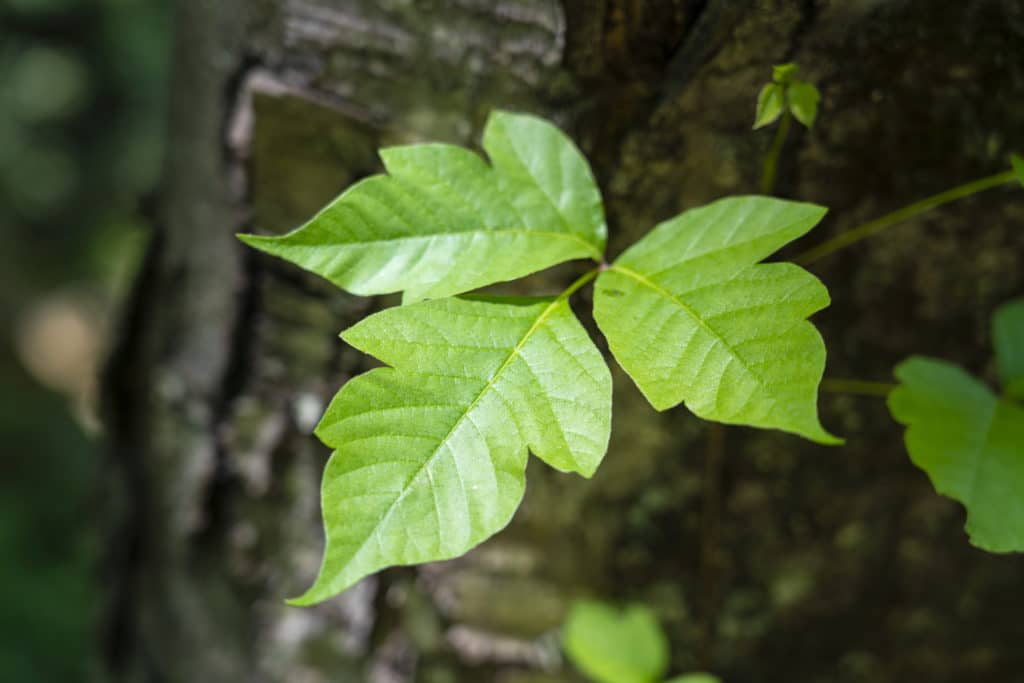Debunked: The 6 Biggest Myths About Poison Ivy

Poison ivy is one of the most common plants in North America that causes allergic contact dermatitis. The mere mention of its name conjures up all sorts of images in mind: a reddish, willowy vine that climbs over trees, and the red, itchy rash caused by it. But there is also a lot of information online about poison ivy that is flat-out false, misleading, or just downright strange. This type of information muddles one's understanding of poison ivy, and to clarify some of it, here are the six myths about poison ivy.
Myth #1: Poison ivy rash is contagious
Poison ivy rash is not contagious. It isn't a virus, fungus, or bacteria. The oil from poison ivy, called urushiol, is the only contagious thing. If you touch someone with a poison ivy rash (which probably has some urushiol) and then touch your skin, you may get a rash.
Myth #2: Poison ivy is poisonous
The "poison" in poison ivy is a substance called urushiol, which only causes an allergic reaction, sometimes called contact dermatitis, on human skin. Many other plants also contain this type of oil. Still, for some reason, only certain people develop an allergy to poison ivy when exposed to it. Other seemingly harmless plants like mangoes also have urushiol, although most people don't have a problem with those. The rash comes from the body's immune system reacting to the oil as if it were attacking it.
However, contact dermatitis can lead to a life-threatening allergic reaction called anaphylaxis, which causes swelling and, in the worst cases, closes off airways. In these cases, immediately go to the hospital to get appropriate medication.
To prevent this scenario, it is best to prepare yourself and keep yourself ready whenever you visit a new location, especially in forested areas.
Myth #3: If you've had poison ivy rash before, you won't get it again
Poison ivy rash is a form of allergic contact dermatitis, which can be triggered by an allergen coming into contact with your skin. If you've had a case of poison ivy, your immune system will produce antibodies in response.
Suppose someone previously had a poison ivy reaction. They're more likely to have another reaction if exposed again—it's the same allergen their immune system is reacting to. Some people may not respond after repeated exposure to the oil. Others do and can develop a rash for the first time at any age. And even if you've never reacted before, you could still get one from touching someone else who has been exposed or touching infected objects.
Myth #4: Poison ivy is always found on the ground
Poison ivy can grow in various places as long as it has enough sunlight and moisture. This means that poison ivy can grow on trees, buildings, walls, and other objects that are up high. You shouldn't assume that poison ivy is only at ground level—it can grow up to 6 feet tall.
Myth #5: Rubbing alcohol is an effective treatment for poison ivy
Alcohol is a drying agent used to clean cuts and scrapes, so it seems logical that you could use it to dry up the oozing blisters from poison ivy. Unfortunately, the truth is that rubbing alcohol makes poison ivy symptoms worse. This is because rubbing alcohol removes the protective barrier on your skin. You'll get better results by washing it with water and soap designed to remove the rash-causing oil, like Tecnu Original Outdoor Skin Cleanser.
Myth #6: Urine can cure a poison ivy rash
There is no evidence that urinating on a poison ivy rash will reduce the itchiness or speed up the healing process. Your urine could contain bacteria, viruses, and other microorganisms that may get into the skin through broken blisters and cause an infection. This can make a case of poison ivy even more uncomfortable, prolonging your symptoms and requiring antibiotics to treat the infection.
Conclusion
Poison ivy can be dangerous if it's not treated correctly. Myths and misinformation are unfortunately not uncommon when dealing with poison ivy, so hopefully, we were able to clarify things for you a bit.
The truth is, the best thing you can do for yourself is stay educated about its growth and spread, and use good judgment when managing your time outdoors. By doing this, you may help yourself from developing an annoying rash.
Prepare yourself and grab some of the best products for itchy skin from poison ivy! At Tecnu, we make sure to give innovative products while retaining a focus on who we are at our core: a team of driven individuals who want to improve the lives of others, whether you're outdoor adventurers, gardeners, athletes, parents, or all of the above.




